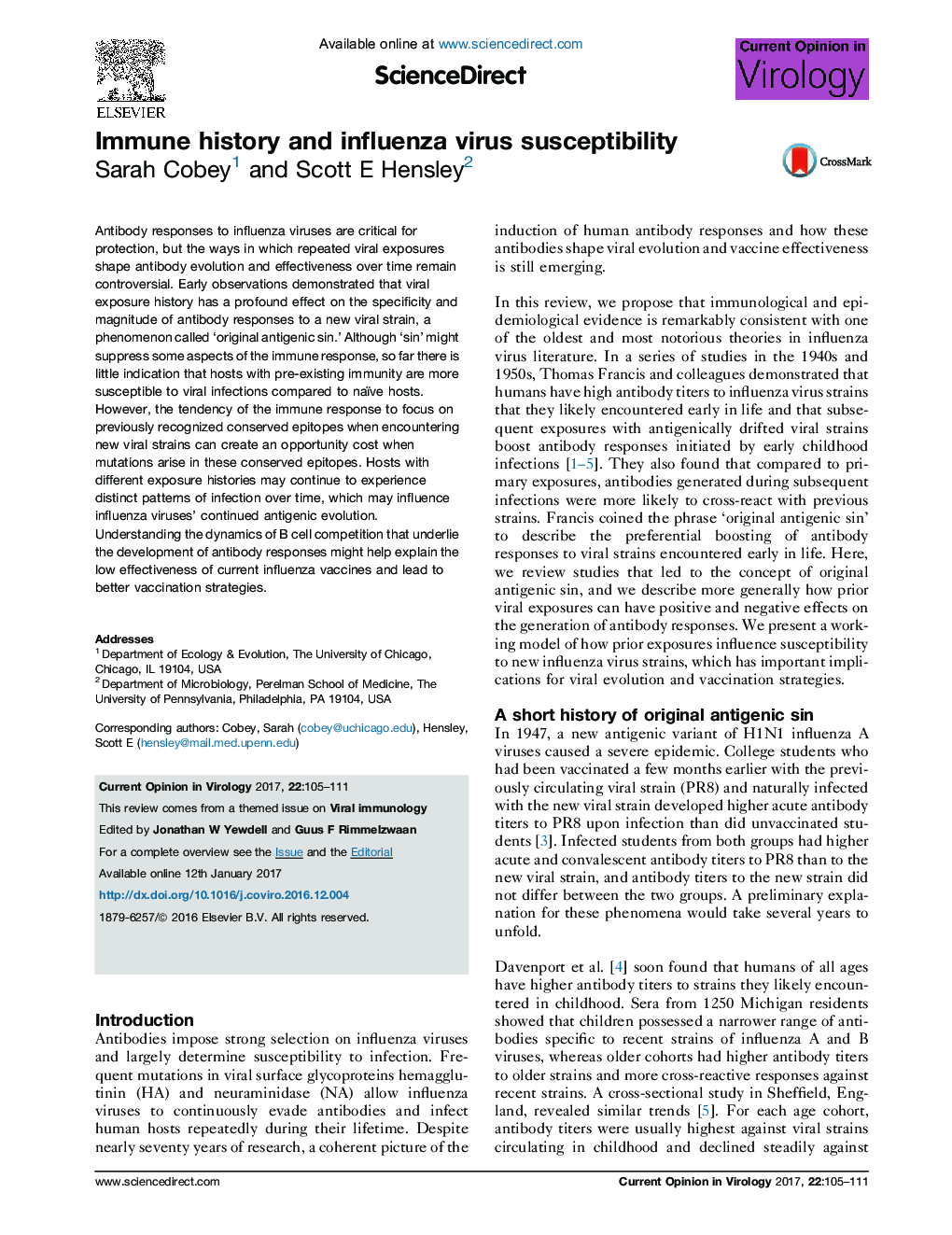| Article ID | Journal | Published Year | Pages | File Type |
|---|---|---|---|---|
| 5546247 | Current Opinion in Virology | 2017 | 7 Pages |
â¢Early viral infections shape B cell response recalled against future viral strains.â¢Competition between memory and naïve B cells occurs in secondary viral exposures.â¢Antibodies become focused on epitopes conserved in past influenza virus strains.â¢Focused antibody responses fail to protect against mutated viral strains.
Antibody responses to influenza viruses are critical for protection, but the ways in which repeated viral exposures shape antibody evolution and effectiveness over time remain controversial. Early observations demonstrated that viral exposure history has a profound effect on the specificity and magnitude of antibody responses to a new viral strain, a phenomenon called 'original antigenic sin.' Although 'sin' might suppress some aspects of the immune response, so far there is little indication that hosts with pre-existing immunity are more susceptible to viral infections compared to naïve hosts. However, the tendency of the immune response to focus on previously recognized conserved epitopes when encountering new viral strains can create an opportunity cost when mutations arise in these conserved epitopes. Hosts with different exposure histories may continue to experience distinct patterns of infection over time, which may influence influenza viruses' continued antigenic evolution. Understanding the dynamics of B cell competition that underlie the development of antibody responses might help explain the low effectiveness of current influenza vaccines and lead to better vaccination strategies.
